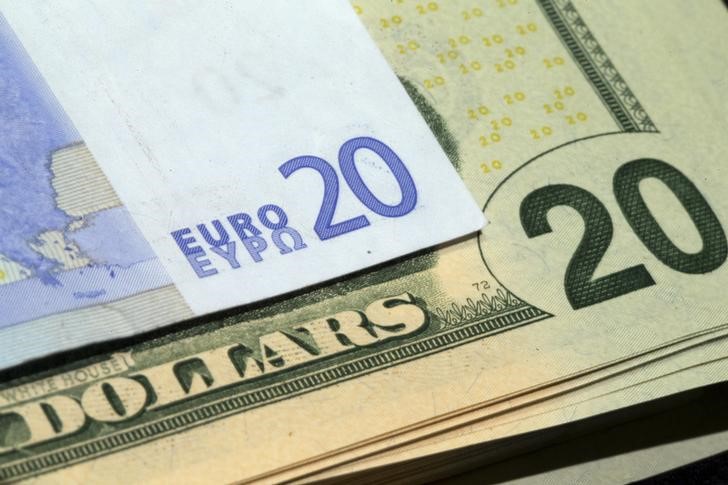By Gina Lee
Investing.com – The dollar was up on Monday morning in Asia, with the euro gaining a fraction after French President Emmanuel Macron's re-election on Sunday.
The U.S. Dollar Index that tracks the greenback against a basket of other currencies inched up 0.05% to 101.260 by 12:31 AM ET (4:31 AM GMT).
The USD/JPY pair edged down 0.15% to 128.37.
The AUD/USD pair fell 0.82% to 0.7179, with the Australian dollar at its lowest against its U.S. counterpart in a month. The NZD/USD pair fell 0.68% to 0.6600, with both Antipodean markets closed for a holiday.
The USD/CNY pair rose 0.66% to 6.5447 while the GBP/USD pair was down 0.28% to 1.2801.
Macron’s defeat of rival Marine Le Pen was an outcome widely expected by markets and political analysts. With 97% of votes counted, Macron was on course for a solid 57.4% of the vote, according to interior ministry figures.
In his victory speech, while acknowledging that many people had only voted for him only to keep Le Pen out, Macron vowed to address the worry of many French people that their living standards are slipping.
"Macron's clear victory is likely to reassure the markets that the European dynamic will continue. In the short term, the main logical beneficiary of this election could be the euro, which was still flirting last Friday with two-year lows against the dollar," Frederic Leroux, a member of the investment team at Carmignac, told Reuters.
"The negative aspect for the markets of this rather comfortable election could however come from a quick decision in favor of a Russian oil embargo, which would exacerbate inflationary pressures and economic slowdown in Europe,” Leroux added.
The euro opened higher at $1.0840 and last traded at $1.0807, up 0.12% from Friday's close, but remained near a two-year low hit during the previous week. The single currency also edged up 0.14% against the pound to 84.22 pence, hitting a three-week peak in early Asian trading.
A strengthening U.S. dollar, boosted by rising Treasury yields, has bruised the euro and most of its major peers. Markets are now recalibrating for a series of aggressive interest rate hikes from the U.S. Federal Reserve.
The pound was slightly softer against the dollar after falling 1.4% on Friday, its lowest point since November 2020.
The Japanese yen has also been the most affected by rising U.S. interest rates, as the central bank actively keeps its benchmark yields pinned down. The dollar was a tiny bit firmer on the yen on Monday morning and has gained 11% on the yen in 2022 to date. The 129.4 mark hit during the previous week was the highest for the USD/JPY pair in 20 years.
